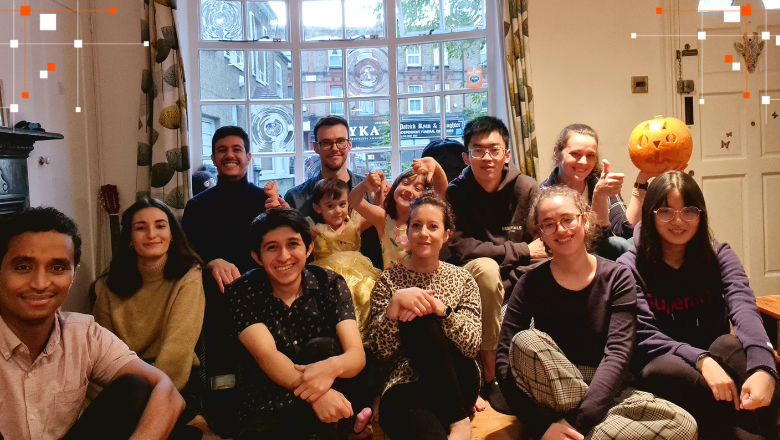We have to acknowledge that the playing field is not equal. Whether it be quality of formative education, share of parental responsibilities, or societal pressures and expectations, some people have natural advantages. My objective with my mentorship is to provide sufficient academic guidance and pastoral support to ensure that everyone succeeds.
Dr Emma Robinson, Senior Lecturer, School of Biomedical Engineering & Imaging Sciences
06 November 2023
In conversation with Dr Emma Robinson
Following on from her recent achievement in receiving the Research Guidance and Mentorship award, Dr Emma Robinson talks about the importance of supportive mentorship in academia, particularly for those from disadvantaged backgrounds.

The Research Guidance and Mentorship award, presented at the Faculty of Life Sciences and Medicine’s 2023 staff awards, recognises individuals who have provided excellent support, guidance, management, or mentorship to early career research staff.
Emma was nominated by her team and students, who described her as an “outstanding supervisor who fosters a culture of collaboration and positivity and provides exceptional pastoral care.”
“It's the most wonderful validation to know that they feel supported and that the efforts I make are positive. As a single parent juggling childcare, who often works shambolically, it can feel like you are failing at everything. So little recognitions such as this mean the world,” she says.
Head of the Research Department of Biomedical Computing within the School of Biomedical Engineering & Imaging Sciences, Emma’s research focuses on improving the precision with which it is possible to compare brain scans across individuals for the purpose of disease detection.
Emma recently presented a keynote at the Human Brain Mapping 2023 conference, emphasising that current brain scan comparison techniques grossly misrepresent how complex and variable they really are.
Alongside her significant research and teaching work, Emma is passionate about supporting early career scientists beyond the standard supervision requirements.
“In my opinion, research supervision should go far beyond day-to-day project management, to encompass pastoral care and mental health support. Academia can be a brutally stressful environment. Often for no good reason. The fact that it is changing so slowly just reflects an unfortunate survivor's bias.”
Emma felt this pressure during her postdoctoral years, while she was balancing childcare and academia. “I felt despair, wondering whether it would be possible to succeed in academia, if success was judged based on the quantity of one's outputs.”
She worries this is the message early career scientists are still receiving, with the pressure compounded for individuals from disadvantaged backgrounds or with caring responsibilities.
It was through the encouragement of her own mentors, Daniel Rueckert, Steve Smith, Mark Jenkinson and Julia Schnabel, that Emma was supported to persevere and succeed.
“They made me realise it is quality that counts, not just in terms of papers but how you work as part of a team and contribute to open science.”
Supportive and diverse mentors, as well as diversity across the working environment, are extremely important, Emma says. “In my experience, individuals from minority groups struggle more with imposter syndrome and self-doubt. Then the system fails them because they are supervised by individuals that cannot empathise with their situation and see no reason to change a system that worked fine for them.”

